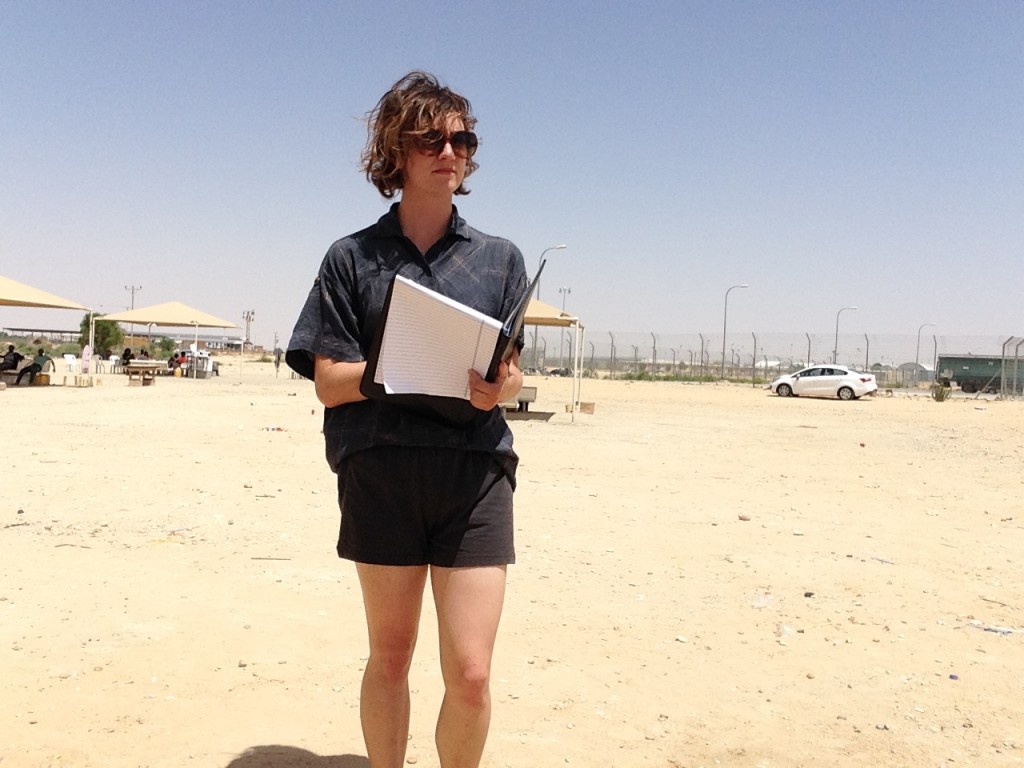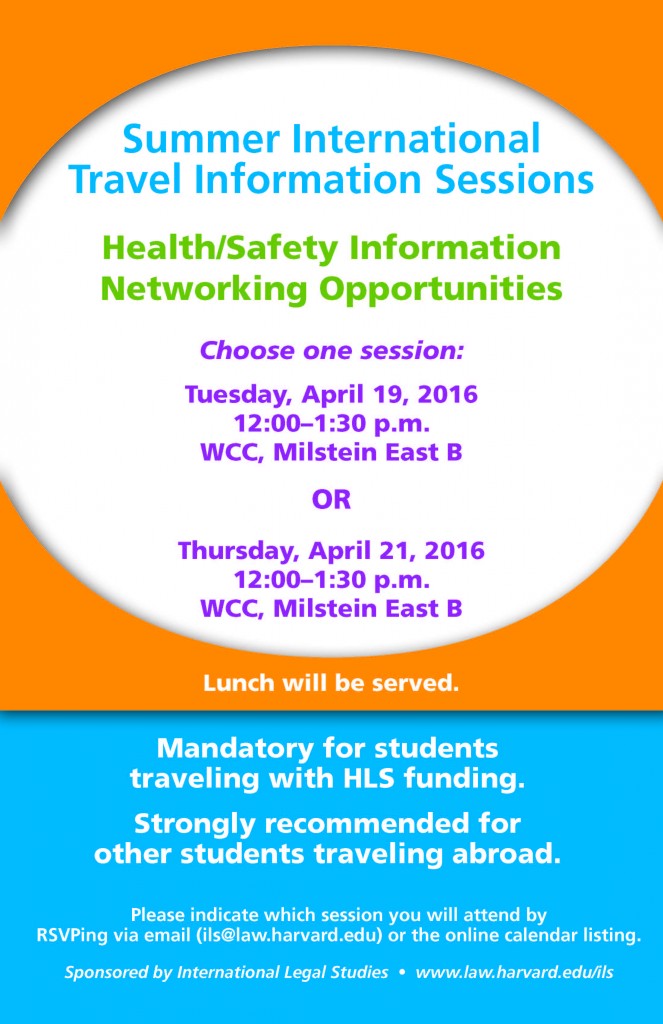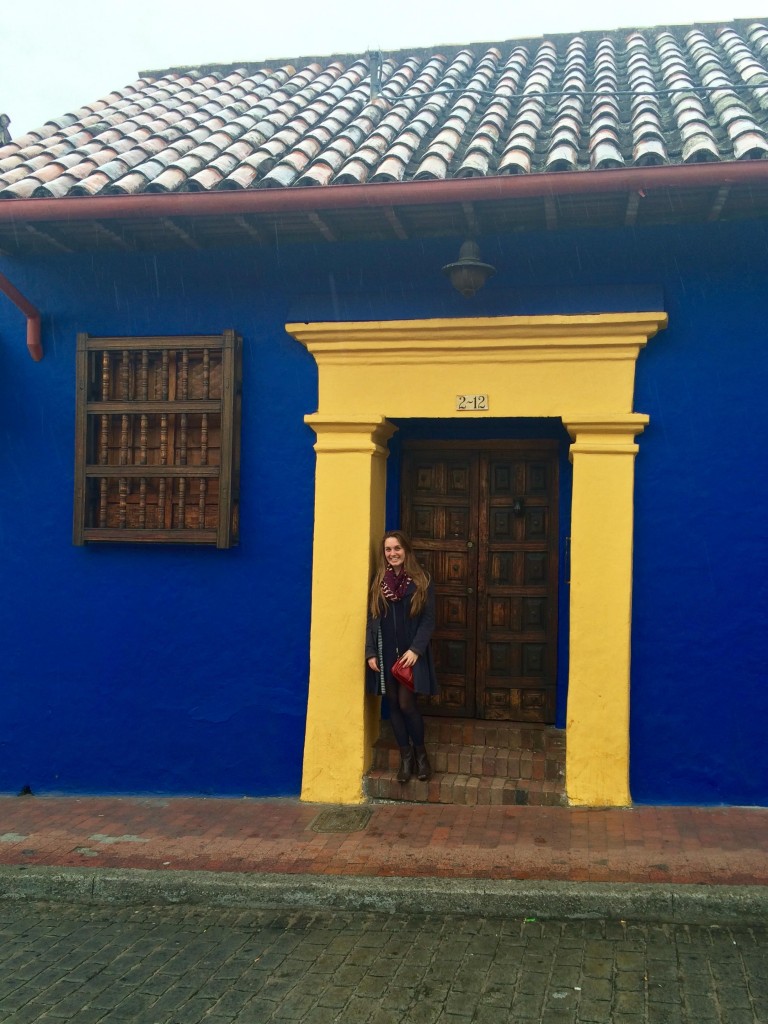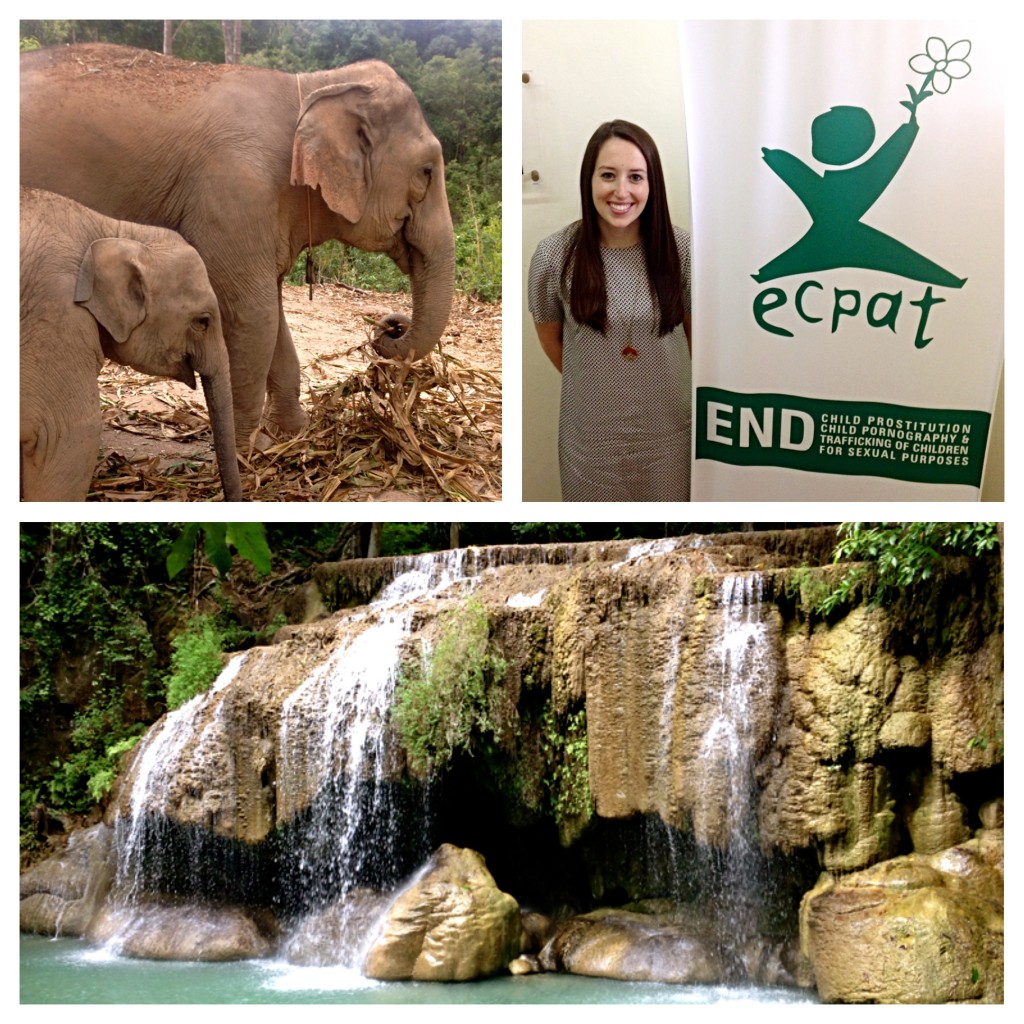
Katie Braun ’18 at the Supreme Court of Israel in Jerusalem. All photos courtesy of Katie Braun.
I’m finishing up the report about different international models of social assistance schemes, together with the other legal intern for the Community Advocacy Clinic. For the Migrants’ Rights Clinic, I’m working on a project about possible legal responses to a “mass influx” of asylum seekers, and different states’ and courts’ opinions on this.

Katie at Holot.
I also went to Holot, the detention/residence facility for asylum seekers, and conducted interviews about the food they are provided (in connection with ongoing litigation about the quality of the food) and about facility officials fining residents in a seemingly arbitrary manner.
Following up on that, I also prepared a memo with some comparative legal standards on disciplinary measures against detainees and associated due process protections. It’s all been very interesting!

Katie and fellow intern at an international migration conference.
The supervisors have also been very good at facilitating outside trips and meetings for us. Over the past several weeks I’ve visited the government’s Refugee Status Determination office and talked to officials there, visited Physicians for Human Rights’ branch office in Tel Aviv, met with a prominent scholar at the National Insurance Institute (who did work on a study about minimum resources required to actualize the right to life with dignity), toured the Israeli Supreme Court, and attended an international migration conference.

Katie with Justice Barak and fellow intern.
We also had the incredibly opportunity to meet Aharon Barak, a former president of the Israeli Supreme Court. Justice Barak is probably the single most influential person in a national legal system I’ve ever met. He spearheaded the notion of an Israeli constitution arising from human rights basic laws passed in 1992. Israel’s constitutional system is completely new to me in that way: there is genuine ongoing debate about whether the country even has a constitution and whether the courts have the power to review primary legislation, as opposed to just administrative actions. I’m finding it totally fascinating.








